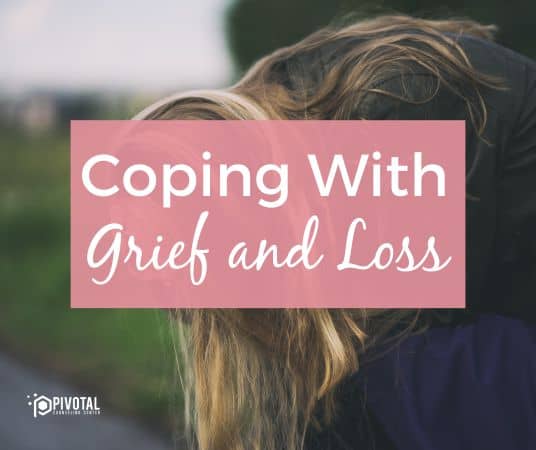
One of the most difficult experiences in life is loss. Throughout our lives, we are all guaranteed to lose someone or something we love to the unstoppable forces of time and change. And while loss is a normal part of the human experience, coping with the loss of a friend, family member, or partner can be overwhelming and even severe in most cases. Grieving a significant loss is a normal part of the healing process, and those feelings shouldn’t be ignored or dismissed or else we’ll never truly recover and accept our new realities.
What are the Symptoms of Grief?
Although grief can look and feel different depending on the individual, we often exhibit similar symptoms that are common to the experience, things like profound sadness and shock. Many struggle to come to terms with the reality of loss and find it difficult to accept. This difficulty navigating loss can leave us feeling empty, lonely and emotionally unstable.
Fear and guilt are other common symptoms of grief that can become overwhelming if not addressed. Those who’ve lost a partner may fear the financial ramifications of their passing on top of the pain of losing their loved one, while others who lost a relative may feel guilty for not being able to say goodbye.
Anger is another common symptom of grief that comes with loss as some who struggle with the reality may look for someone to blame, even themselves.
Grief can also affect you physically. Many of us experience symptoms like fatigue, aches and pains, insomnia, and nausea while grieving. And while this is normal to the process, these symptoms can worsen over time and disrupt our daily lives if we fail to properly cope with our respective losses.
Coping with Grief: How to Begin
While loss can be difficult to cope with, it is crucial we allow ourselves to properly grieve by giving ourselves whatever time we need to do so effectively.
Those who struggle with expressing their emotions may feel the urge to withdraw and isolate while grieving, fearing how others would react to their grief, but we cannot heal from loss on our own. Sharing your feelings of sadness and despair with loved ones who understand or care about what you’re going through is critical to the healing process. Even if you don’t feel comfortable sharing just yet, just being in the company of others can help ease feelings of grief over time.
For those who might feel they cannot share these feelings with family or friends, it might help to speak with your primary care provider about your struggles and explore potential ways to better cope with these feelings. You can also go online and search for a support group in your area as a way to speak with others who are also struggling with their grief.
It’s also important we remind ourselves that there is no correct or incorrect way to grieve and not everyone will take the same time to heal.
While some people are capable of properly grieving and accepting their loss within a few months or a year, there are many who might take years to fully heal from their respective loss. Grief can also hit us in varying waves of intensity, even years after the initial loss and the difficulty of the experience and that is okay too. The grieving process is an individual experience about a significant personal loss, which means we all react and heal differently when coping with loss.
If you feel your grief is becoming too difficult to deal with or find it interfering with your daily life, working with a therapist can help you effectively cope with these feelings and eventually accept your loss so you can move forward in a healthy way. If you’re looking for grief support, our therapists in our Woodstock and Lake in the Hills, IL offices can help. Give us a call today to get started.
Pivotal Counseling Center is now accepting Medicaid including Blue Cross Community Medicaid, Meridian Medicaid, and Molina Medicaid for outpatient counseling.









